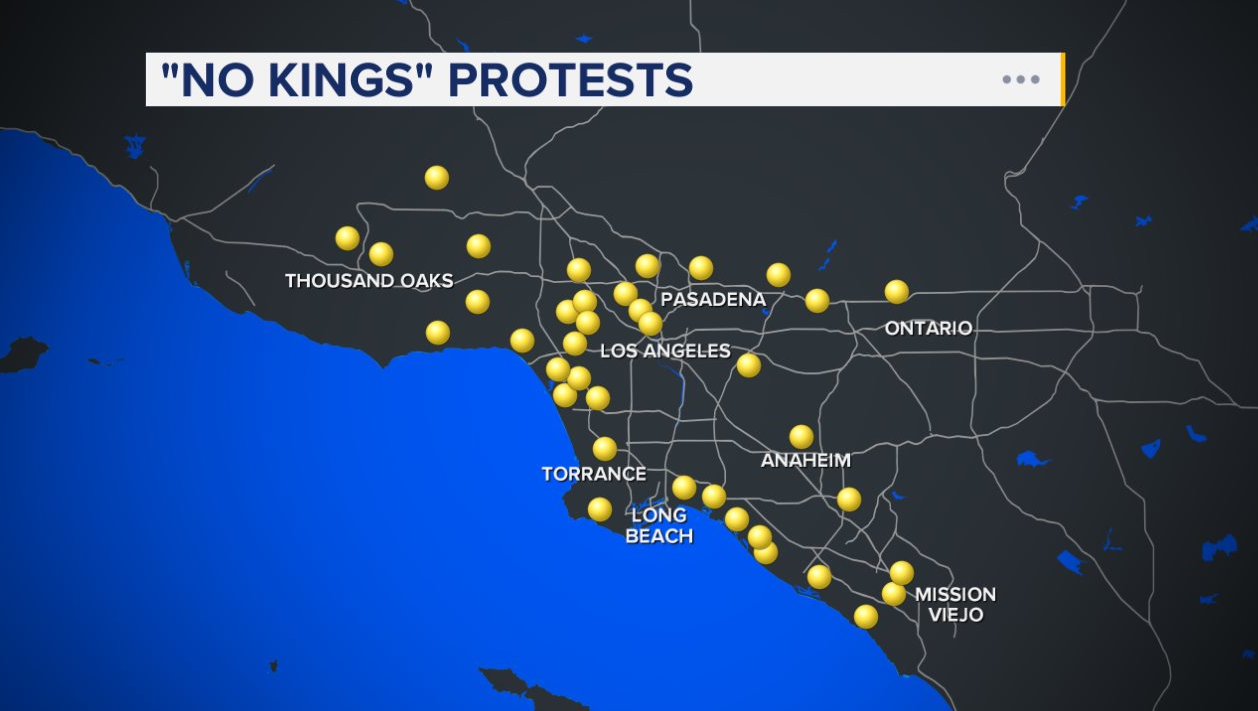FBI agent: "This was purely to intimidate me and get me to back off the investigation"

LOS ANGELES (KABC) -- It was a startling and high-stakes encounter caught on tape - two LASD Sergeants confronting FBI Special Agent Leah Marx outside her home in September of 2011.
Marx was the lead FBI Agent on a case that would ultimately lead to scores of LASD criminal indictments -- including former Sheriff Lee Baca himself.
Baca has pleaded not guilty. Nine of his LASD subordinates have either already been convicted or pleaded guilty in the scheme to obstruct an FBI investigation into deputy brutality and corruption in the jails.
"Do you know you're a named suspect in a felony complaint?" asks LASD Sgt. Scott Craig as he and Sgt. Maricella Long approached Marx on the video played for jurors Tuesday.
"It felt like an eternity," Marx told the jury Tuesday of the confrontation that lasted only minutes.
"I thought this was purely to intimidate me and get me to back off the investigation," Marx testified.
"I'm in the process of swearing out a declaration for an arrest warrant for you," Sgt. Craig falsely told FBI Agent Marx in the video.
The LASD had put a surveillance team on Marx to learn more about her investigation of the LASD. The Sheriff Department's own undercover cameras captured the intense face-off.
Her voice cracking at times, Marx told jurors "it was very difficult," but that the encounter "told me that I was on the right track."
In the summer of 2010, Marx was tasked with investigating widespread allegations of deputy-on-inmate brutality inside Los Angeles County jails.
But the scope of the FBI's investigation soon expanded to public corruption as it became clear that LASD officials had hidden inmate-turned-FBI informant Anthony Brown after his cover was blown - and intimidated witnesses - telling them not to talk to the FBI.
Brown, a colorful New Yorker and career criminal, was then awaiting trial for a string of armed robberies. He agreed to become an informant - and pass information to the FBI about any incidents he witnessed of abuse or corruption.
Prosecutors say former Sheriff Baca himself was in on the plan to confront FBI Special Agent Leah Marx - and that the act was criminal obstruction of justice.
Baca, 74, has denied he knew anything about the plan to approach Marx. On Tuesday, jurors heard Baca adamantly deny any prior knowledge in an April 2013 FBI interview recording.
"That's why I remember it. Because, I wouldn't know what day ICIB talked to Leah Marx if it wasn't for Mr. Martinez's call," Baca said of the urgent phone call he received that evening from the head of the FBI's Los Angeles Field Office, Steve Martinez.
Not true, says former LASD Captain Tom Carey who testified against Baca for the first-time last week.
"His advice to us was not to put handcuffs on her," Carey testified. "Send a message but don't arrest."
"At that point, I circled back," Baca says in the 2013 FBI interview. "I made notifications and say - 'Don't do this, because it's not appropriate.'"
FBI Special Agent Marx testified Tuesday there is no evidence that Baca did, in fact, call off his LASD investigators. She reviewed reams of cell phone records -- not just of Baca, Undersheriff Paul Tanaka and investigators directly involved in the case - but also Baca's driver - who would regularly hand off his phone to the Sheriff.
Marx testified that no phone records indicate Baca made any calls to his investigators that night after assuring the FBI's Steve Martinez that he'd "intercede on her behalf," -- and tell his investigators to "cease any effort" to arrest Marx.
Phone records appeared to show a pattern - a flurry of activity whenever new information surfaced about inmate-turned-FBI informant Anthony Brown over a six-week period in the summer of 2011.
On key dates, Marx showed jurors charts of calls between Baca and his LASD underlings who later testified they were only following the Sheriff's orders.
Baca's defense says there's no evidence of what was actually discussed in the calls - portraying Sheriff Baca as out of the loop.
As for FBI informant Anthony Brown? The defense accuses FBI agents of jeopardizing jail safety by entrusting a career criminal and "habitual liar" with a cell phone that could be used to plot escapes or kill witnesses.
On cross examination, Baca defense attorney Nathan Hochman tried portray FBI Agent Leah Marx as a "rookie," who put "money on the books" of a criminal who was facing life in prison and had "nothing to lose."
Court will be dark on Wednesday. Testimony is expected to resume Thursday morning with the prosecution's final witnesses - including former U.S. Attorney Andre Birotte.
Got a tip? Email ABC7 Investigative Producer Lisa.Bartley@abc.com






